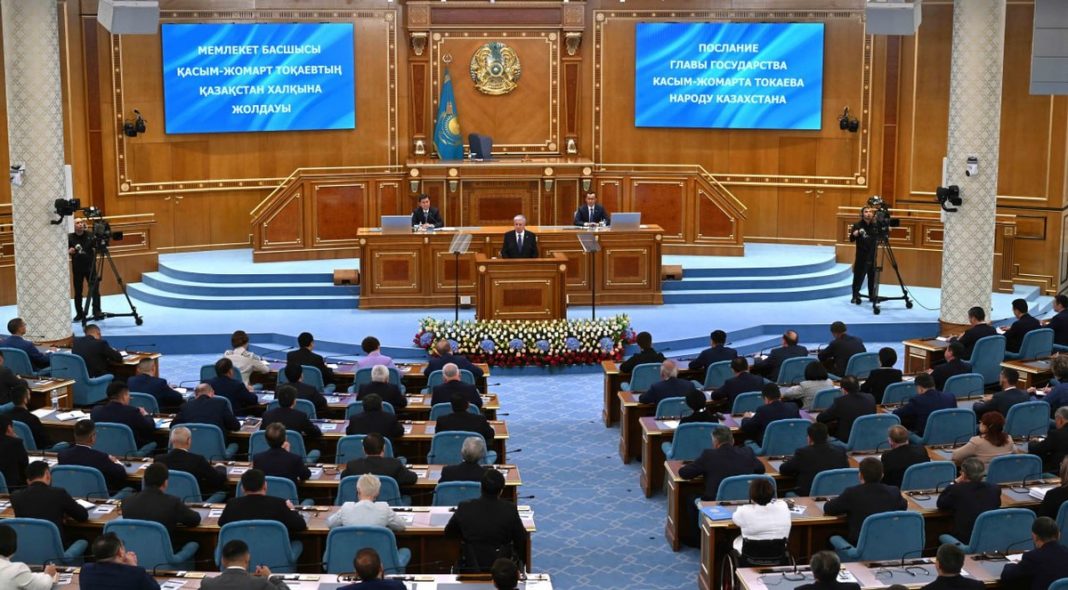On 6 October, Kazakhstan held a referendum on the construction of a nuclear power plant. According to preliminary results, 71 per cent of those who voted supported the construction of a nuclear power plant. This is the fourth referendum in Kazakhstan and the second held under President Tokayev.
The first was held on 29 April 1995, with the question of extending the powers of the president until 2000 without elections. According to official data, 95.4 per cent were in favour of Nursultan Nazarbayev’s continued stay in power. In a second referendum, on 30 August 1995, Kazakhstanis voted to adopt a constitution that political observers believe laid the foundations for the establishment of authoritarianism. More than 90 per cent of voters approved the text of the Basic Law, according to the CEC. In the following years, the Constitution was amended extensively, spelling out the privileges of the first president.
The third referendum was held on 5 June 2022, five months after the bloody January events that weakened the influence of Nazarbayev and his family. A package of amendments to the 1995 constitution was put to a vote that would have cancelled Nazarbayev’s privileges and removed references to him. Other amendments included limiting the presidential mandate to one seven-year term, banning relatives of the president from holding public office, and restoring the Constitutional Court. Nazarbayev’s successor, Kasym-Jomart Tokayev, and his team announced the construction of a “new Kazakhstan”, reforms and movement towards democratisation. However, two years later, according to opponents of the regime, the new Kazakhstan remains the same as the old one. Only now the authorities are not afraid to tighten the screws again, a little unwound before. Tokayev has successfully consolidated power, while society has sunk into apathy caused by fear and disappointment.
Even before the referendum, observers at home and abroad noted that the issue of building a nuclear power plant in Kazakhstan goes beyond energy and directly affects politics, and the referendum and subsequent events will show how successfully the country will be able to solve the problem of energy security and cope with complex geopolitical challenges.
In this piece Ascolta examines the internal political processes in Kazakhstan and analyses the possible consequences of the referendum, the main purpose of which is called energy security, but many have questions about the political implications both in Kazakhstan and the region.
This Content Is Only For Subscribers
Arguments for and against
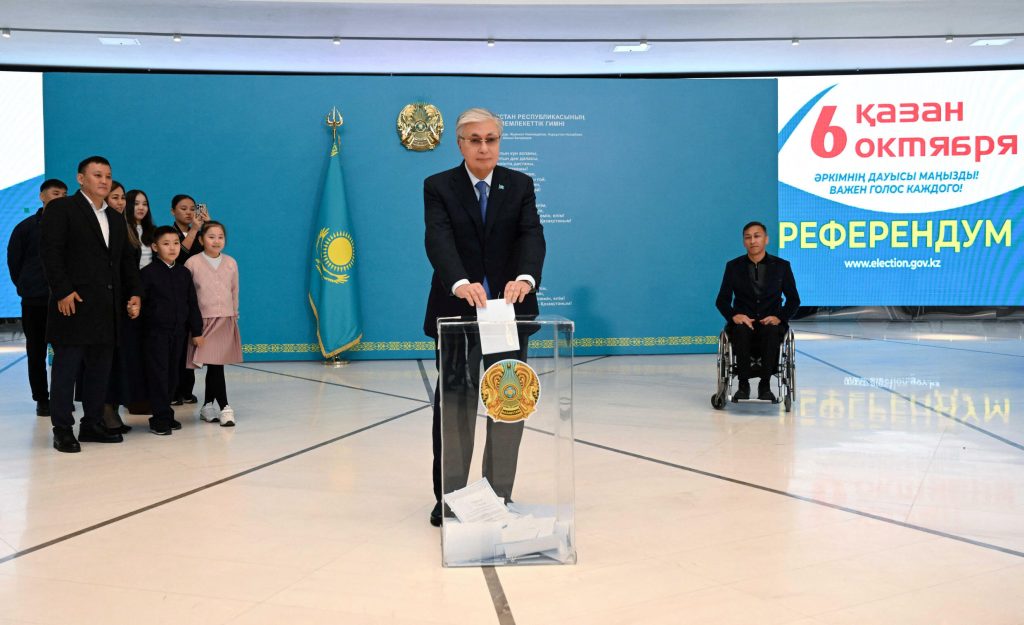
Kazakhstan’s President Kasym-Jomart Tokayev first announced the need to hold a referendum on the construction of a nuclear power plant in 2023. At that time, in his address to the citizens of the republic, he noted the existence of different points of view on this “extremely important issue” and proposed to put it to a national vote. A few days before the referendum, Tokayev publicly expressed his support for the “large-scale” and “long-term” project. According to the head of state, without its NPP, Kazakhstan could “remain on the sidelines of world progress”.
Ahead of the vote, a separate section dedicated to nuclear power appeared on the republic’s government website. The construction of nuclear power plants in Kazakhstan will help solve problems with the environment, increased consumption and wear and tear of old plants, as well as create new jobs and become “a solid basis for the country’s energy security”, according to the state portal. The country’s Energy Minister Almasadam Satkaliyev has warned of a growing power shortage in Kazakhstan by 2035. Then, according to the Energy Ministry’s forecasts, electricity consumption will grow to 152.4bn kWh, while generation will fall to 135bn kWh. And it is by 2035, as the authorities plan, that the NPP should start operating.
While campaigning for the construction of the nuclear power plant, the government of Kazakhstan also used “heavy artillery”. IAEA Director General Raphael Grossi told Kazakhstani media that the organisation he heads had advised Astana on the construction of a nuclear power plant in Kazakhstan. “We had a mission to identify and analyse the nuclear, institutional and regulatory infrastructure that your country needs to move forward. And this year we are also working on various trainings and meetings where we are collaborating with Kazakhstani nuclear experts, preparing to accompany and support Kazakhstan’s efforts to introduce nuclear energy production, in case of a favourable decision on this project,” said Rafael Grossi. He added that the construction of any nuclear power plant is controlled by the IAEA in accordance with very strict safety standards.
Opponents of the NPP, in turn, called the project unsafe, “economically unprofitable” and “environmentally risky”, suggesting that renewable energy sources should be used instead of nuclear power. Other counterarguments include the assumption that Kazakhstan would need to take out a loan to build the plant, and that the country’s residents would pay more for the electricity generated by the new plant. According to preliminary estimates, the cost of work on the NPP construction will be $10-12 billion. In addition, environmental experts and eco-activists united in the group “NPP kerek emes” (“No need for NPP”) drew attention not only to the fact that Kazakhstan may become dependent on the supplier of NPP technologies in the conditions of growing geopolitical tensions. They also spoke about other risks. In particular, the prevalence of corruption, which, according to experts, creates a basis for abuse and will hinder careful oversight of the construction process.
Opponents of the NPP also noted the high tariff for electricity generated by nuclear reactors. In addition, from the point of view of the participants of “NPP kerek emes”, the plant can cause irreparable damage to the ecosystem of Lake Balkhash, the village of Ulken on the shore of which the government calls a probable site for the construction of the NPP. Experts also cite such a factor as high seismic activity in the region: in the event of an earthquake, the plant could collapse and vast areas would become uninhabitable due to radiation contamination. The issue of NPP waste utilisation also remains unresolved. In these conditions, environmentalists call for the development of green technologies and betting on alternative energy. The trauma caused by years of nuclear weapons testing during the Soviet period has been cited as a factor reinforcing phobias about nuclear power plants in Kazakhstan. From 1949 to 1989, the Soviet military conducted more than 450 explosions at the Semipalatinsk nuclear test site. The consequences still affect the health of the local population.
Kazakhstani authorities insisted that the nuclear power plant would be safe, contribute to the development of domestic science and local personnel in the field of peaceful nuclear energy, and create new jobs. Government representatives added that the nuclear power plant is necessary for Kazakhstan to meet its targets for reducing harmful emissions to combat climate change, as required by its international commitments. Another argument from the government and supporters of nuclear power is the importance of technology development in a country that ranks first in the world in uranium production, the main component of fuel for nuclear power plants.
All-round support
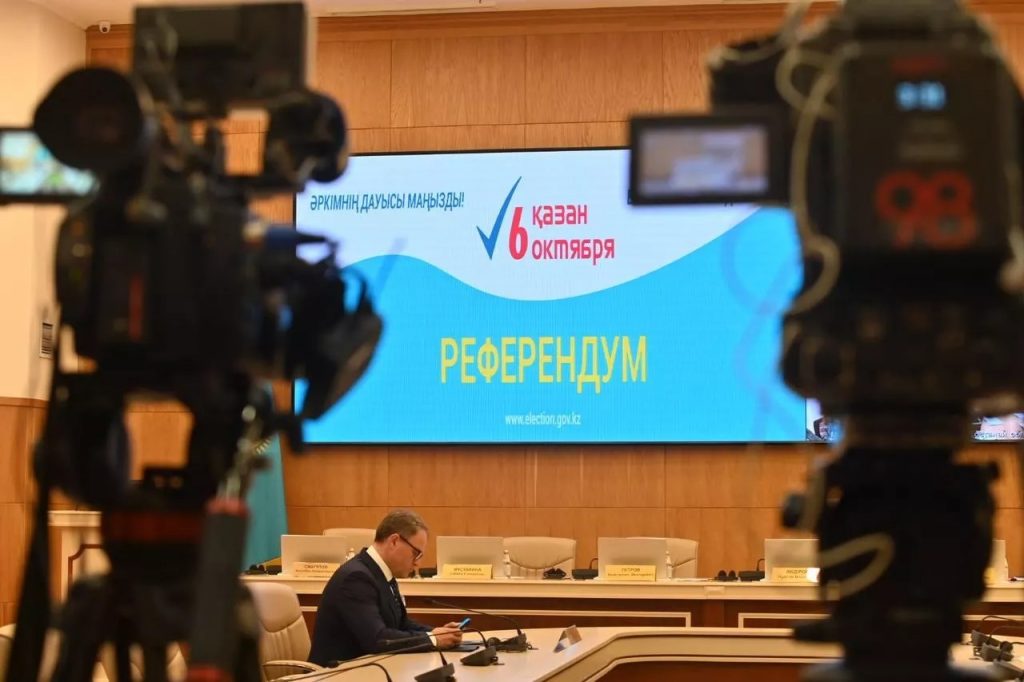
Supporters of nuclear power won in all regions of Kazakhstan without exception. The most votes in favour of nuclear power plants were given in Kostanay region – almost 82.2%. The worst result was recorded in Almaty – about 54% voted in favour. Thus, in Ulken (Almaty region) – the settlement where the NPP is supposed to be built – 1,066 voters out of 1,069 (i.e. the turnout was 97%) voted in favour. Of these, almost 90% – 956 people – voted in favour.
As expected, the greatest support came from the southern regions, for which the issue of energy deficit is primarily relevant. Electricity generation in Southern Kazakhstan covers only 57.2% of consumption. And given the fact that the southern regions are the most densely populated, this gave a strong impetus to the final figures.
One of the important problems facing the referendum organisers was to ensure the turnout of citizens. The turnout threshold was removed from the electoral legislation a long time ago, but the referendum legislation still contains the norm. A referendum is considered valid if at least 50 per cent of registered voters take part in it. This circumstance (in addition to campaigning for the need to develop nuclear power) forced the presidential administration to mobilise resources. Under the auspices of the ruling Amanat party, a people’s headquarters “For the Construction of Nuclear Power Plant” was established, which included 6 political parties and 20 public associations. According to the consensus opinion of Kazakhstani political scientists and experts, this measure was effective. According to the CEC, 7.8 million people participated in the referendum. As a result, the turnout was 63.66%.Only one region – Almaty – failed to reach the required quorum: just over 25% voted there. In all other regions the number of those who took part in the referendum was more than 50 per cent, and in eight regions this figure exceeded 70 per cent. At polling stations abroad, the turnout exceeded 81 per cent.
At the referendum also worked observers from the Shanghai Cooperation Organisation and the Conference on Interaction and Confidence Building Measures in Asia – “in their opinion, the referendum is open, free and legitimate, not a single violation at the polling stations they were not detected”. It should be noted that Kazakhstan officially sent invitations to European structures, particularly the OSCE, but they refused to send observers because of the large number of election-related events planned for the coming months. The Kazakhstani Prosecutor General’s Office found only two violations during the referendum – in connection with illegal public opinion polling and illegal campaigning. The absence of any significant violations was also noted by the CIS observer mission. Although the 6 October referendum was relatively calm compared to the previous presidential and parliamentary elections, there were still cases of detention of activists and obstacles for observers, which the official authorities kept silent about. This gave experts reason to note that the political culture of an authoritarian state that developed under former President Nursultan Nazarbayev continues to persist in Kazakhstan.
“Hear everyone.”
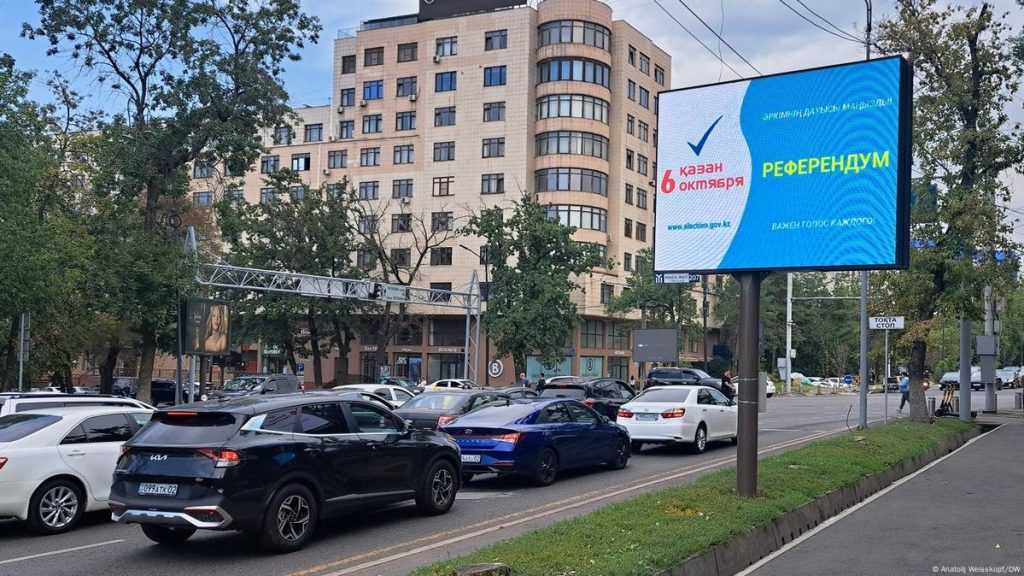
In his message announcing the date of the referendum on the construction of the nuclear power plant, Kazakh President Kasym-Jomart Tokayev said the campaign would be “another manifestation of a broad nationwide dialogue and a vivid example of implementing the concept of a ‘hearing state'”. “With such steps, we are forming a new socio-political culture, laying down new standards for making key state decisions,” he added. Kazakhstan’s government has held 20 public discussions on the construction of nuclear power plants in the oblasts over the past year. Tokayev said in a September address that this is sufficient time for citizens to make an informed decision on NPP construction.
However, some experts believe that the discussions were not enough to form an objective public opinion and that they were not open enough. As the Kazakhstani service of Radio Liberty notes, the discussions in Astana did not differ much from those held in other cities: speakers opposing the construction of nuclear power plants were also not invited, and the presentations focused only on the “advantages” of nuclear power plants. Speakers spoke for about ten minutes each, and those who wanted to ask questions were hampered by the two-minute time limit. Those who did not manage to speak in the allotted time had their microphones cut off, and some were even asked to leave the microphone.
The preparations for the referendum also clearly demonstrated that the democratic standards Tokayev spoke of in 2022 when he announced the “New Kazakhstan” strategy remained only declarations. According to Bakhytzhan Toregozhina, head of the human rights organisation Ar. Rukh. Hak, about 30 activists were detained across the country in the run-up to the campaign. Among them are those who were arrested for two months on charges of intent to organise “mass riots”. Actually, arrests of activists have long been nothing new in Kazakhstan. For example, in 2023, the well-known political activist Marat Zhylanbayev was sentenced to seven years in prison for “financing an extremist organisation”. In August 2024, journalist and civic activist Duman Muhammedkarim, whose YouTube channel “Ne Deydi” became especially popular after the 2022 protests, received the same sentence under the same article. The leader of the unregistered Democratic Party, Zhanbolat Mamai, received a suspended sentence of six years for “organising mass disorder” and a ban on social and political activity.
Independent organisations also reported that there were restrictions on expressing opinions against NPP construction and that rallies were not allowed. For example, according to activist Elvira Bekzadina, they tried to create a movement “STOP NPP”, but were unable to officially register it. Opposition media also had big problems. The norm on liability for dissemination of “false information”, which appeared in 2023, created additional risks for journalists and bloggers.
Before elections and referendums, there have always been strict requirements for conducting opinion polls. Previously, even if sociological institutes met these requirements, many of them could not get permission from the Central Election Commission. The same thing happened this time. The novelty was that now journalistic polls among the population were equated with social polls. On the eve of the referendum, a court in the Kazakh city of Uralsk fined Tamara Yeslyamova, editor-in-chief of the Uralskaya Nedelya newspaper, for violating the rules of conducting an election-related opinion poll. The journalist stated that the fine was imposed for a YouTube video in which she asked people’s opinion about the referendum. This case raised a legitimate question among journalists: “Is it not allowed to conduct public opinion polls on the eve of an election or referendum?”. While organisations close to the authorities receive permission to conduct such polls.
The head of the PaperLab research organisation, sociologist Serik Beisembayev, believes that the authorities are “doing everything to avoid showing alternative views in the media”. His research centre applied to the Central Election Commission to conduct a poll before the referendum, but the commission refused permission. The reason for the refusal was that the research centre receives funding from international sources. Also rejected was an application filed last month by Demoscope, an express public opinion monitoring bureau of the MediaNet International Journalism Centre. Both opposition activists and agree on one thing – this referendum does not resemble the “national dialogue” Tokayev spoke of with pathos. Like a classic autocrat, he conducted it according to the desired scenario to get the desired result.
In general, however, as soon as the new Kazakh authorities felt more confident, their arsenal of repressive practices and characteristic rhetoric returned. Having been re-elected for a seven-year term and rebuilt the system to suit himself, Tokayev essentially acquired Nazarbayev’s powers. At the beginning of his presidency, he seemed mild and modest, and in two years he has evolved into a typical autocrat-patriarch. Moreover, some signs point to the degeneration of the Tokayev regime into an even harsher authoritarianism. The authorities explain their inhibition of reforms and democratisation by the fact that the system that has been formed over 30 years cannot change overnight. This, by the way, is also confirmed by a sociological survey conducted by Paperlab in April 2024, which shows that this explanation generally works: a part of Kazakhstanis justify Tokayev, putting the responsibility on “bad performers on the ground” and external circumstances (war in Ukraine, natural disasters, etc.).
Other polls also show a contradictory picture. On the one hand, 64 per cent of respondents did not notice any significant changes in the country’s governance system. On the other hand, President Tokayev retains a rather high personal rating. This contradiction is explained by the effectiveness of state propaganda, the absence of a real political alternative, and the hope that the president will still fulfil what he promised – we just have to wait. And this belief is reinforced by Kazakhstan’s successes in external orbits, where under President Tokayev Kazakhstan began to turn into a serious player in the international arena, with which the West, China, and Russia openly “flirt”, and the choice of a potential partner in the construction of NPPs will largely reflect the geopolitical vector of the country.
Geopolitical aspect
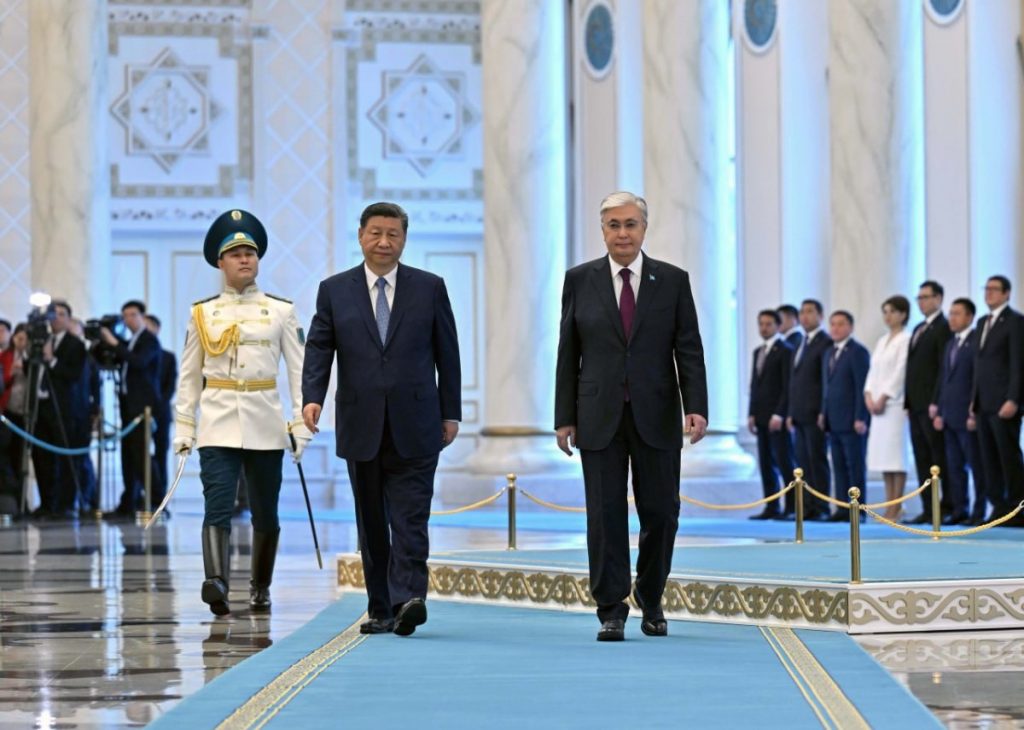
After the Kazakhstani people supported the idea of building a nuclear power plant, the Kazakhstani government will face a difficult question – to decide on the procedure and make a decision on the choice of the main contractor for construction. Astana is considering the following options: China National Nuclear Corporation (CNNC); Rosatom; South Korea’s KHNP (Korea Hydro & Nuclear Power); and France’s EDF (Électricité de France). During a visit to the polling station where Tokayev voted in the referendum, he told reporters, “The government should engage in analyses, conduct appropriate negotiations. But my personal vision of this issue is that an international consortium should work in Kazakhstan, which will consist of global companies with the most advanced technologies. Further, as they say, life will show”.
The consortium idea was publicly announced two years ago. “The construction should take the form of an international consortium, that is, it will not be one country that will build the entire station. We will take the best technologies. If we talk about the nuclear island (a complex of buildings and structures related to the operation and maintenance of the nuclear reactor), the most efficient technologies can be provided by Russia, Korea, and France. If we talk about power equipment, we see the best technologies from General Electric and Korean manufacturers. If we talk about auxiliary equipment – automation, metering systems, pumping equipment, there are a large number of manufacturers in European countries, such as France and Germany,” Almasadam Satkaliyev, then head of the state fund Samruk Kazyna, said.
The statement by President Tokayev of Kazakhstan not to give preference to any one country in the construction of NPPs, but to use an international consortium, in addition to purely technological, has a political, but rather a geopolitical aspect. It reflects Kazakhstan’s policy of geopolitical multi-vectorism. It emphasises that it does not favour any one side, be it the West, China or Russia, but tries to maintain a balance of interests with each of its partners. Although, as they say, variations are possible.
West wind
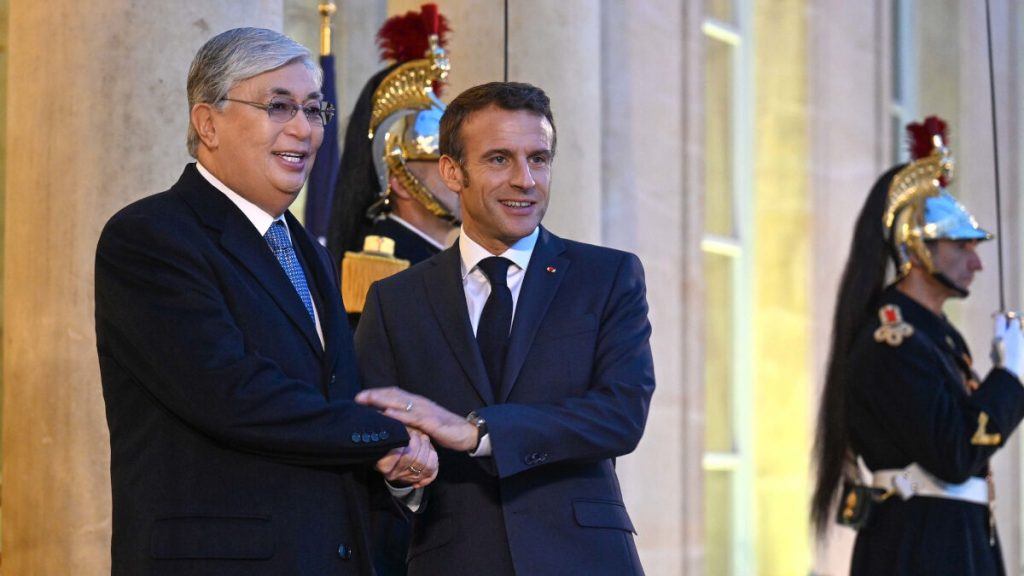
The issue of construction of a nuclear power plant in Kazakhstan by a European company, more precisely by the French company EDF (Électricité de France) was discussed a year ago during the visit of French President Emmanuel Macron to Astana. In terms of nuclear energy, Kazakhstan seems to be a promising partner for France. More than 60 per cent of France’s electricity is produced at nuclear power plants. And at the talks in Astana, the French president, in fact, presented the state-owned company EDF as a potential contractor for the construction of nuclear power plants. There was another motive – uranium. The fact is that Kazakhstan is the largest producer of natural uranium on the planet. It accounts for 43 per cent of the world’s production. Before France imported a significant amount of uranium from the mines of French companies in Niger. After the military coup in that country, there were fears that uranium supplies to France might be cut off. Although Paris assured that the revolution would not affect the country’s electricity production and that it would have enough uranium reserves for two years, Macron’s visit showed that Paris was still concerned about uranium supplies.
However, there were also geopolitical aspects. After Russia’s aggression against Ukraine, Kazakhstan became an important part of the EU’s energy component: Russian oil exports to the EU fell sharply, and Kazakhstan became the third largest oil supplier to the EU after Norway and the United States. It was therefore important for the West, on the one hand, to weaken the Central Asian countries’ ties with Russia and reorient them towards developing relations with the EU, among other things. On the other hand, the West is concerned about China’s growing influence in the Central Asian region, so another prospective task for Paris is to resist Beijing’s growing influence. Of course, it cannot compete with China, which has invested in more than 100 projects in Central Asia thanks to the “One Belt, One Road” initiative. However, Brussels is quite capable of giving Kazakhstan, for example, “pluses”, including through investments in infrastructure projects through the Global Gateway programme, or, for example, the construction of a nuclear power plant in Kazakhstan.
In a word, the west wind began to blow more and more strongly into the sails of the Kazakhstani ship, which, by the way, is eloquently evidenced by another landmark visit to Astana and the countries of Central Asia by German Chancellor Olaf Scholz.
Of course, energy co-operation between the two countries is especially important for Berlin. Last year, Kazakhstan supplied 8.5 million tonnes of oil to Germany, more than only Norway and the United States. The growth was facilitated, among other things, by the fact that last year Kazakhstan started pumping oil to Germany directly through the Russian Druzhba pipeline. Although the volume of transit through this route is still modest – about 1.2 million tonnes a year, according to Reuters estimates. The Kazakh authorities have planned the same volume for 2025. In addition to oil, Kazakhstan has natural gas reserves of more than 2 trillion cubic metres, which is also important for the German economy. “We are very happy to develop cooperation in the energy sector … It is very important for us to support peaceful trade so that protectionist intentions are unsuccessful. In this vein, I am happy about our meeting and the upcoming meeting with representatives, presidents of all Central Asian states. This has already become a good tradition,” the German Chancellor emphasised to Kasym-Jomart Tokayev.
In 2023, trade turnover between the two countries increased by 41% to $3.9bn. Kazakhstan became one of the fourth ten trading partners of the Federal Republic of Germany. In addition, in 2023 Germany invested $770 million in the Kazakh economy – 64 per cent more than last year. “Positive dynamics is also observed this year. Over the past seven months, the volume of mutual trade has exceeded $2.3bn,” the Kazakh leader said. In total, since 2005, direct investments from Germany have totalled about $6.7 billion. The President specified that during Olaf Scholz’s visit the parties agreed on 66 joint investment projects worth $55 billion.
What Scholz did not see during his visit not only to Kazakhstan, but also during his entire Central Asian tour, was any public discussion of the war in Ukraine and the need to counter Russian aggression. Of course, this does not mean that the Ukrainian issue was not touched upon at all. In Astana, the chancellor said it was necessary to explore the possibility of launching a peace process on Ukraine. However, he did not go into details. Kasym-Jomart Tokayev, in turn, at the meeting with the Chancellor said that in military terms Russia is invincible and further escalation of the war will lead to irreparable consequences for all mankind and, above all, for all countries directly involved in the Russian-Ukrainian conflict. And he specified that Astana supports the peace plan of China and Brazil.
Mr Tokayev added that Kazakhstan has taken an equidistant position in the conflict and has maintained working relations with both Moscow and Kiev. Later, Olaf Scholz once again touched on the consequences of the Ukrainian crisis, noting: the FRG will not allow trade relations to be used to circumvent anti-Russian sanctions. “I am grateful for the trusting dialogue between us, thanks to which we want to prevent the use of trade between us to circumvent sanctions,” he stressed at the meeting with President Tokayev. Although all Central Asian leaders try not to publicise this issue, de facto they all comply with the necessary requirements for fear of being subjected to secondary sanctions. Thus, Central Asian banks have banned transactions with under-sanctioned Russian financial organisations.
Scholz’s recent visit to Kazakhstan, the trips to Astana by the presidents of France and Italy, the president of the European Council, the foreign policy departments of the EU, the US, the UK and Switzerland emphasise the fact that the West, as we have previously noted, is increasingly trying to diversify the country’s economic ties and make it less dependent on China and Russia. Of course, it would be foolish to publicly urge the Kazakh authorities to weaken their ties with Beijing and Moscow. That would have the opposite effect. It is therefore the task of Western leaders to convince Kazakhstan, and perhaps the rest of Central Asia, that they themselves are of long-term strategic interest to them and that they can rely on new partners in case of dissatisfaction with the two influential neighbours.
For the sake of this, Western countries have even dropped the issues of human rights and democratisation, which irritate Kazakhstan’s leader, from the list of priorities. Lectures on how to conduct domestic policy are also a thing of the past. Now Western diplomats limit themselves to general expressions of support for reforms. And the Kazakhstani authorities skilfully use this, on the one hand, strengthening their positions inside the country, and on the other hand, demonstrating that the pragmatism of Kazakhstan’s foreign policy proves its effectiveness. Firstly, the country is not under secondary sanctions of the West. This is despite the proof of supplies of dual-use goods to Russia. Point sanctions were imposed against individual campaigns.
Thus, in August this year, the US Department of Commerce updated the sanctions list, adding 123 more companies to it. Among them is the Kazakhstan branch of the Turkish firm All Global Trading Elektronik Dis Ticaret Ltd Sti, registered in Almaty. Earlier, the US and EU sanctions lists included Kazakh companies: Defence Engineering LLP, Elem Group LLP and Da Group 22 LLP, which are suspected of supplying electronic equipment, integrated circuits and other dual-use goods to Russia. In June 2024, the list of sanctioned companies was supplemented by CBD-Technologies LLP, registered in the North Kazakhstan region. The company, according to the US Treasury Department, has repeatedly supplied components for drone assembly. As investigative journalists previously wrote, three companies – CBD-SMT, CBD-Trans and CBD-Technologies – registered in Kazakhstan acted as intermediaries in the supply chain of goods to Russia to circumvent sanctions. At the same time, the goods did not even reach Petropavlovsk, but went straight to Minsk, from where they were transported to Moscow.
Secondly, Kazakhstan is not facing a tough geopolitical choice. The West fears that an ultimatum in the spirit of “it’s either us or them (Russia and China) will only push the country towards Moscow and Beijing. Russia cannot give such ultimatums either. It does not have many allies in the world and it would be an unacceptable luxury to throw away the ones it has. However, the geopolitical nuclear and not only nuclear partnership between Kazakhstan and Russia will be discussed ahead.
Dangerous bargain
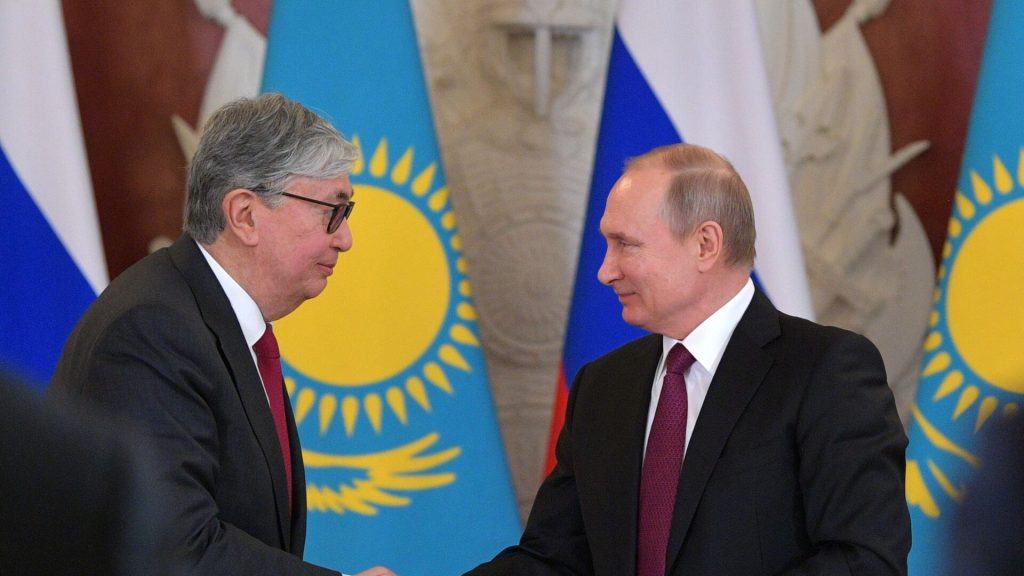
It would seem that the choice of Rosatom as the contractor for NPP construction in Kazakhstan would, at first glance, be quite logical. For many years after the collapse of the USSR, it remained the monopoly supplier of nuclear fuel and builder of NPPs in the post-Soviet space and in the former socialist camp countries. Thus, at the end of May Uzbekistan signed a contract with Russia to build a low-capacity nuclear power plant in Jizzak Oblast, 260 kilometres from Tashkent. In early September, it became known that the Russian corporation Rosatom made proposals to the Kyrgyz authorities to build a low-capacity nuclear power plant with six reactors. Although an official contract has not yet been signed, specialists have already started to select a site for the construction of a small nuclear power plant.
Rosatom is also building a $12 billion nuclear power plant in Bangladesh. The Bangladesh government says the 2,400 MW plant, which is expected to start testing this year, will solve the problem of power shortages and blackouts. In Turkey, Russia is building the country’s first 4,800 MW nuclear power plant, which is expected to start generating electricity this year. Russia is involved in more than a third of the new reactors being built around the world, including in China, India, Iran and Egypt. Before the full-scale invasion of Ukraine, Russia already accounted for about half of all international agreements to build nuclear power plants, supply reactors and fuel, decommission or manage waste. Its main nuclear competitors – China, France, Japan, South Korea, South Korea and the United States – together accounted for about 40 per cent.
However, Russia’s aggressive foreign policy in general and especially the war against Ukraine has seriously changed this situation.
The Czech Republic is a prime example. It is now gradually abandoning Russian nuclear fuel. And earlier, in 2021, it excluded Rosatom from the tender for the completion of the Dukovany NPP, leaving South Korea’s KHNP, the US-Canadian company Westinghouse and France’s EdF. However, as they say, not everything is so unambiguous. “Rosatom, for example, continues to build nuclear power plants in Hungary. To a large extent, it is to the intercession of Hungarian Prime Minister Viktor Orban that the Russian nuclear monopoly owes the fact that it has not yet fallen under serious sanctions. The European Union has not imposed any at all, and the Americans go no further than individual subsidiaries of Rosatom, which, according to them, work for the Russian military-industrial complex.
Still, there is little doubt that if Russia’s aggression against Ukraine continues, Rosatom will also fall under sanctions in the coming years. And since even the official project for the construction of a nuclear power plant in Kazakhstan takes at least 8 years, it means that the Russians may become an unacceptable construction partner for any foreign company, including even South Korea. The French and Americans will obviously not deal with Rosatom even now.
So there are two ways left. A fictitious consortium to hide Rosatom’s participation or its complete absence from the project. Will Kazakhstan risk going down the path of completely distancing itself from Russia? So far, only Armenia has made it more clear that it would like a nuclear power plant built according to Western standards. In Kazakhstan, however, they say rather that the consortium may not be a replacement for Rosatom, but a scheme to ensure its participation in only part of the project. But there is still a chance that Tokayev will take a risk and be the first in the post-Soviet space to invite non-Russians to build a nuclear power plant.
Moreover, in the context of Russia’s full-scale invasion of Ukraine, there are enough voices in Kazakhstan that do not want to strengthen Russian influence in the country. The NPP construction is a form of such “soft” influence. It is no secret that Rosatom is the Kremlin’s key factor in winning the Global South. The company has signed nearly two dozen memoranda of understanding with countries in Africa and Latin America, including Zimbabwe, Mali, Burkina Faso and Brazil. In Ghana, Russia has begun preparing a bid to build the country’s first nuclear power plant alongside suppliers from the United States, China, India, South Korea and France. The relationships Russia is building through nuclear projects surpass even long-standing pipeline gas supply contracts.
The construction of a nuclear power plant takes about 10 years, and the reactor lifetime of new plants is 60 years. Preparation for dismantling, including the removal of radioactive parts, takes another 10-20 years and requires significant funds. In addition, there are other obligations that bind the partner state, such as training of specialists, procurement of equipment and maintenance of equipment. So it is a very long-term commitment for a country to have a Russian presence.
After 24 February 2022, relations between Kazakhstan and Russia changed. Kazakhstan was considered Russia’s closest ally after Belarus, so it would be logical for Moscow to expect some kind of support from it in the war with Ukraine. After all, Kazakhstan has always participated in all sorts of Russian integration projects, including the military CSTO, and during the January 2022 riots, President Kasym-Jomart Tokayev was able to retain power largely thanks to the Kremlin’s help. In reality, however, Kazakhstan’s response has been more than tepid: the country has complied with anti-Russian sanctions, and in October 2023 banned exports to Russia of 106 types of high-tech goods that could be used in warfare. Astana has also pledged to track goods in transit to limit “parallel imports” to Russia.
Kazakhstani banks are refusing to service cards of the Russian payment system “Mir”. Tokayev’s speech at the St. Petersburg Economic Forum in June 2022, when he said in Putin’s presence that he had no plans to recognise the DNR and LNR, made a particularly strong impression. Since then, there have been many similar statements from Kazakhstan. Moreover, Tokayev’s readiness to publicly oppose Moscow, on the contrary, strengthens his position both in Kazakh society and in the West, where he is beginning to be perceived as an independent politician who no longer depends on either Nazarbayev or Putin. In this regard, many in Moscow are experiencing poorly concealed irritation at the actions of its EAEU and CSTO ally and believe that Kazakh President Kasym-Jomart Tokayev has simply “ditched” Russia, which once kept him in power. In addition, discontent is caused by the fact that Kazakhstan is undergoing Kazakhisation and narrowing the scope of the Russian language in everyday life and government agencies.
There is strong sympathy among Kazakhstanis for Ukraine as a victim of Russian aggression, and the authorities are in no hurry to recognise the “new territories” as Russian. However, so far Moscow seems to be trying to show that beyond the Ukrainian issue, it is ready to adhere to pre-war principles with its neighbours – they say that everything is fine with everyone, and Ukraine is to blame. In Central Asia, Russia’s main priority has always been to strengthen friendly political regimes. It is counterproductive to put pressure on Kazakhstan now, strangle it economically, force it to support the war and demand a break with the West. Therefore, Kazakhstan is balancing playing a very complicated diplomatic game, where on the one hand there is war and sanctions, and on the other hand there is dense co-operation within the framework of integration associations. And Astana is unlikely to want to upset the balance by becoming dependent on Russia, giving the contract for the construction of the nuclear power plant to Rosatom. Perhaps China will help it in this, as the China National Nuclear Corporation (CNNC) has also shown interest in building a nuclear power plant in Kazakhstan.
Flexible Chinese approach
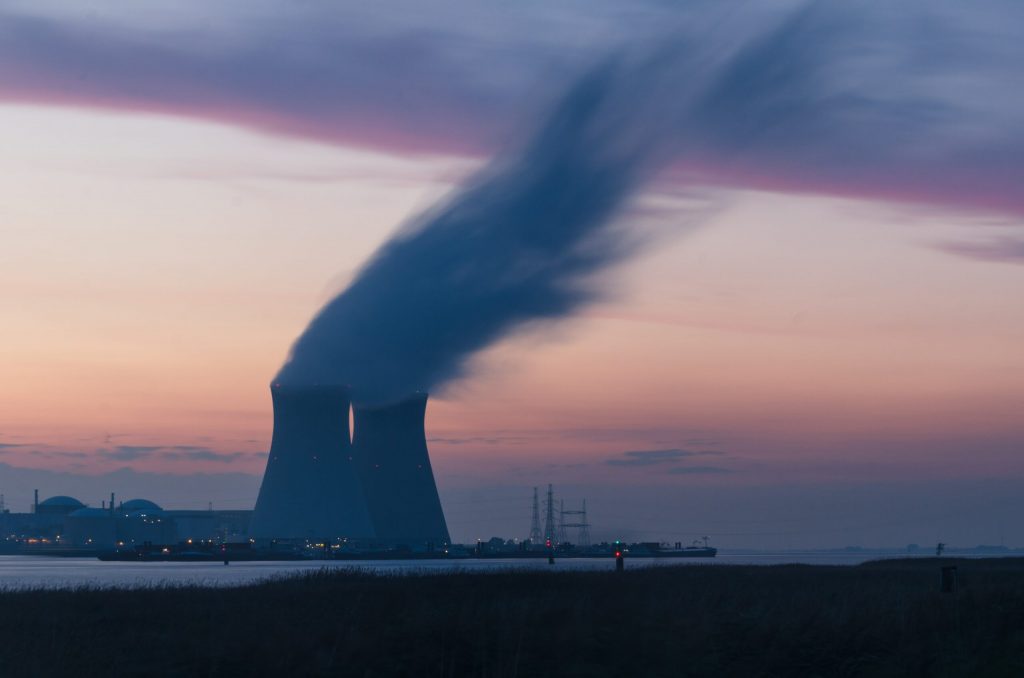
We should give credit to the Chinese, they react very quickly where profit and political influence are concerned. CNNC Corporation has already calculated how much it will cost Kazakhstan to build the NPP and for how long. The cost of construction of NPP of two blocks with a total capacity of 2.4 GW, which is planned to be built by 2035 in Kazakhstan, if the Chinese contractor is chosen, will be 5.6 billion dollars. At first, the Ministry of Energy of the Republic named the cost of $10 billion and the period of 10 years, but later the figure increased to $15 billion.
According to the CNNC representative, the Chinese corporation will make every effort to deliver the NPP on time if it is selected as a contractor. Li Yudong, responding to a question about the possibility of construction of NPP in Kazakhstan by the Chinese side under the buld-operate-transfer (BOT) scheme noted: “If the leaders of our countries declare eternal friendship, it means that we should work together and promote progress. Therefore, from our side, we are ready to be friends with you.” Under the buld-operate-transfer (BOT) scheme, Rosatom is building Akkuyu NPP in Turkey. Under this project, part of the electricity from the units is purchased by the Turkish side at a pre-agreed tariff, but the Russian side independently provides construction and financing of the facility.
The economic relationship between China and Kazakhstan is often treated in a rather formulaic manner, fitting only into Beijing’s promoted Belt and Road Initiative, in which the Central Asian republic plays the role of a “buckle” in an overland economic belt linking China and Europe. As the largest country in Central Asia, Kazakhstan is of course key to China’s concept of ties with the West. However, viewing it as just one of the nodes in Beijing’s transregional geo-economic strategy overlooks the flexibility of Chinese players in their approach to Kazakhstan’s interests and the benefits that local companies are skilfully extracting from interaction with the PRC in key sectors. A good example is bilateral cooperation in uranium mining and nuclear fuel supply.
Kazakhstan is the largest producer of natural uranium on the planet: in 2022, its share in the world totaled 43%. On the one hand, this is due to the presence of rich deposits of this resource, and on the other hand, the geology of the deposits itself allows extraction using the inexpensive and highly profitable method of in-situ leaching. Kazakhstan has two-thirds of the world’s uranium reserves that can be extracted in this way, and in 2022, almost 80 per cent of the world’s uranium will be extracted in this way. The huge extraction cost advantage has allowed Kazatomprom, the national nuclear company, to become one of the most competitive uranium producers in the world and find itself in a strong negotiating position with foreign companies seeking access to the country’s cheap resources. Since there are no NPPs in the country, the question arises as to where all the mined uranium goes.
This is where China, the world’s second-largest producer of nuclear energy, comes into play, with the fastest growing number of civilian nuclear reactors. Compared to the United States, where few new reactors have entered commercial operation in the past 30 years, China has maintained an astounding pace of new nuclear plant construction – and it has only accelerated in recent years. In fact, most of the 26 current reactor construction projects were launched during the current boom, which began in 2022. To secure natural uranium for its powerful nuclear industry, China has adopted a four-pillar strategy (literally translated, “four-in-one”): domestic and overseas mining, international procurement, and reserves.
As China’s nuclear power production grew rapidly, demand for uranium exceeded production, and most of the raw material was either purchased from international suppliers or mined abroad. And Kazakhstan became an indispensable link in both cases. It is worth noting that successful cooperation in nuclear energy between China and Kazakhstan may become an additional bonus in favouring a Chinese contractor. And of course, another bonus could be the special economic and political relations between Astana and Beijing, which are visible to the unarmed eye.
Even at the SCO forum in Astana in July this year, Chinese leader Xi Jinping was greeted more pompously than Vladimir Putin, to whom the Kazakhstani press paid almost no attention, letting Russia know who was the priority. And no wonder. Since 2013, $9.55 billion has been invested in Kazakhstan as part of the Belt and Road project. In addition, China has become Kazakhstan’s largest trading partner – trade turnover between the countries last year reached $41 billion (for comparison, trade turnover between Russia and Kazakhstan in 2023 was $30 billion). All the more so, against the background of Kazakhstan’s rather unclouded relations with Russia, Beijing and Astana have no political and economic problems. And if we add to this the sanctions pressure on Russia from the West, and Beijing’s attempt to question the unspoken system of checks and balances established in Central Asia, according to which China was responsible for investments and economic projects, and Russia for security, then Kazakhstan’s drift towards Beijing is quite understandable.
By pulling the security blanket over itself, China is showing that it cannot allow conflicts in Central Asia, as this could affect the Belt and Road projects, in which China has invested hundreds of billions of dollars. No, China is not, contrary to popular belief, going to squeeze Russia out of Central Asia as a whole. It is doing so in those segments of co-operation where Russia’s position is weakening. And Kazakhstan, which is of paramount importance to China in the region, is the first country in which Beijing has begun testing its new role. Moreover, China’s assertion as the main country of the Global South only strengthens the attraction of not only Kazakhstan, but hundreds of other developing countries to it. Still, given China’s seeming advantages as a contractor for the construction of a nuclear power plant in Kazakhstan, Tokayev is unlikely to favour Beijing or any other party that has submitted proposals. In his foreign policy, multi-vectorism is important to him, which means that he can safely bet on a consortium.

